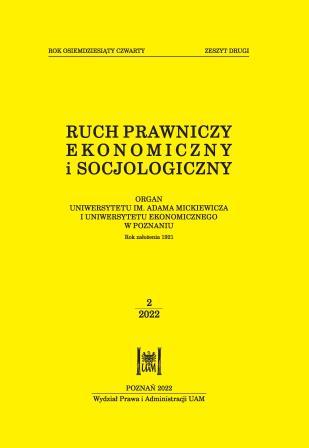Warunki skuteczności ochrony sygnalistów – uwagi na tle dyrektywy 2019/1937
Conditions for the effectiveness of whistleblower protection – some remarks on Directive 2019/1937
Author(s): Ewa MilczarekSubject(s): International Law, Human Rights and Humanitarian Law, EU-Legislation, Comparative Law, Administrative Law, Labour and Social Security Law
Published by: Uniwersytet Adama Mickiewicza
Keywords: whistleblowing; European Union law; employees
Summary/Abstract: The role of whistleblowers is important in a democratic society, in terms of implementing the postulate of transparency in public life, and for verifying the functioning of public institutions and persons discharging public functions. For many years, the European Union has encouraged the Member States to introduce such regulations. The research objective of the article is to evaluate Directive (EU) 2019/1937 of the European Parliament and of the Council of 23 October 2019 on the protection of persons reporting breaches of EU law in terms of the effectiveness and adequacy of the proposed solutions. Appropriate standards ensuring their protection constitute an important element enabling the realization of the freedom of expression and the right of access to information. The research is based on the legal dogmatic method. The article singles out and analyses the elements of an effective whistleblower protection system and performs a critical analysis of Directive 2019/1937 in terms of meeting these conditions. Undoubtedly, both the creation of a minimum level of protection at the EU level and the horizontal approach covering sectors, public as well as private, should be positively assessed. However, the Directive leaves some gaps for the national legislator, the fulfilment of which depends on the actual effectiveness of the solutions proposed in it.
Journal: Ruch Prawniczy, Ekonomiczny i Socjologiczny
- Issue Year: 84/2022
- Issue No: 2
- Page Range: 103-116
- Page Count: 14
- Language: Polish

